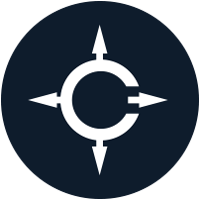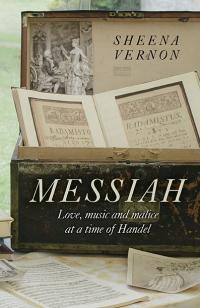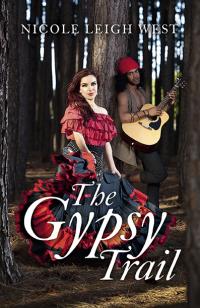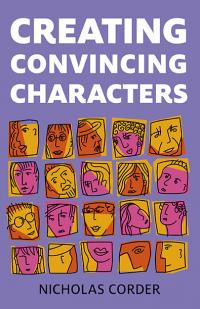
 I have been an indie author of adult and children's ebooks since
November 2011, have published eleven short ebooks/stories, and in that time I have realised that the best way to be found as an author is discoverability. There are lots of ways in the wonderful
world of the internet to be discovered, but here are my top ten tips.
I have been an indie author of adult and children's ebooks since
November 2011, have published eleven short ebooks/stories, and in that time I have realised that the best way to be found as an author is discoverability. There are lots of ways in the wonderful
world of the internet to be discovered, but here are my top ten tips.- Create a series. Readers like to return to characters they've already read. My 'Guardian Angels' YA set is a series. I remember reading series as a child. First it was Mr Men then Noddy,
graduating to Famous Five, Secret Seven, Nancy Drew and Mallory Towers. I loved reading what each set of characters did time after time. Didn't you? I think that's what influenced me as an adult to
write series for both adults and children. As an adult avid reader, I still like reading novels by the same author, especially characters who live in the same town.
- Make the first ebook in a series perma-free (free for-ever). My bestseller, The Railway Angel, is perma-free. I initially priced it at 0.99c but only a few sold, so after a couple of weeks, I
made it free and the downloads went up and up. Within a week, the downloads went from tens to thousands. I think that readers who have read my first Angel ebook, have liked it, have seen that I have
more out in the series or other ebooks to read, and perhaps have downloaded or bought the rest of that series and my other ebooks.
- Write, write and write. I always have a writing project on the go. I have read on websites and in magazines that the way to being discovered is to write more books, and the more I have out there,
the more I will be found by readers. So, I have three series going, and one set of three. I also write in more than one genre to widen my appeal to readers. I write for middle-grade (9-12 year-olds),
young adults and adults, so I can have two to three sets of readers.
- I have each ebook on all the digital platforms. I know that some authors have had more luck with just putting their ebooks on Amazon and nowhere else, but I have mine on all the platforms, and
have got downloads and sales on most of them. I have earned more from Smashwords than I have Amazon so far. I also believe that not everyone, especially children, own a Kindle. I think that some
children (I know that my two teenage nephews have an iPad) own other ereading devices such as the Kobo or the Hudl by Tescos. I believe that having ebooks across all digital platforms, I will reach a
far wider audience of readers.
- Social media. I belong to Facebook, Twitter, Google+, LinkedIn and Pinterest. The etiquette is not to post/tweet too much about your book. I have read that lots of authors do not like other
writers bombarding them with posts/tweets saying 'Buy my book.' I usually only post when I have a new ebook out, and then I spread my news a little bit each day and post to different Facebook groups,
tweets and email various writing groups I belong to. When I do post/tweet, I usually post about how much I've written on a story or what the main character in my work is up to at the point I've
reached. A good site to use is PInterest, although mainly women use it. I find it useful because it is a visual tool for writing and promoting my books. I have boards with my book covers, people,
places and things connected to my ebooks, and quotes that my characters might say in the books. I don't know if other people who have liked my pins, repinned the picture onto their own boards, have
liked my photos enough to buy or download my ebooks mentioned in the pins.
- I belong to online groups, and organisations in genres that I write in. I'm a member of the Romantic Novelists' Association (RNA). When I've emailed their Yahoo email group with promotion for a
new ebook, one of the members has asked if she can have a tweet so she can tweet on Twitter for me, which she has done. I believe this is how I got into the Top 20 and 40 of two bestseller reads for
free ereads. I belong to two online groups: internet marketers and Alliance of Independent Authors (ALLi). Most of the people in the internet marketing group live in the US, so when my coach, Rebecca
Woodhead, posted in all the Facebook groups we are in about me finding out being an Amazon bestseller, it created a huge buzz, and the members picked it up, shared it, commented on it and tweeted on
it, and more importantly, downloaded it. It went up the list.
A week later, it was on the members' showcase bulletin of ALLi, which is based in the UK. That made it rocket up the UK list to the Top 20, which it hadn't been the week before. Also, back in April 2014, I did a library talk and updated my Facebook status, saying that I had done the talk and thought it was successful. ALLi's blog organiser asked if I could blog for them. I said yes. A couple of weeks later, it went up on the blog. I got two sales for that as well as a 4 star review and exposure for my ebook.
So, being part of organisations and Facebook groups, mentioning my ebook, has created a buzz, and shot up the number of downloads for my ebook.
- Talks. I started to give talks and workshops in my local libraries to both adults and children this year. I believe it is a good way to reach my readers directly. Last December I participated in
one of my library's Christmas fayres. The main librarian mentioned at the time about doing more events. When we met in the New Year to discuss me doing further events, the librarian suggested doing
talks about publishing ebooks, knowing I had experience doing this. I agreed. This got me thinking about what I had learnt on my way to being an indie author. My first talk was called 'Five Steps to
Publishing an Ebook'. At the end of that talk, the librarian suggested doing a follow-up talk. Again, I thought about what I had learnt and could share about publishing ebooks. I also write fillers,
and having done one talk about this which I remembered was successful, I thought I could do this again at this library. It is now booked for October this year. This can be another reason why it's
good to write in different genres. I write for adults and children, and have done talks for adults and workshops with children.
- Print on Demand (POD). Amazon have their own POD branch called Create Space. I understand that they have an easy guide on how to use it and how to create a cover for it. I haven't used it yet
because I want to write and not waste time learning how to do this. So what I do is upload my Word document of the novel onto a website called Draft2Digital, who then upload it to Create Space for
me. I have more time to write the next ebook then. I find having print versions of a couple of my ebooks is a good idea, especially when I have talks and workshops planned. I have sold a few copies
of my POD versions at my talks this way, and plan to do the same at the children's workshop.
- Email lists. It has been said a good way to reach readers is to grow an email list. There are a few sites that you can use to set up emails to go to people automatically. The ones I know most
about are Aweber Communications (which I use) and Mailchimp. I have read that a good way to reach readers is to put a message in the back pages of your ebook. I have started to do this. I write
something like this:
Dear Reader
Thank you for reading my ebook. If you would like to receive news about future ebooks, why not sign up to my newsletter. You can do this by emailing me at...”
A second suggestion, which I also do, is to ask people to sign up at talks I give. I have handed out slips to my audience to complete and return to me at the end of the talk. Next time, I might
mention it at the start of the talk, saying if you want full details of the talk or more, then email me at (the list name). The first idea I got from fellow romance author, Julie Cohen, and the
latter idea from Rebecca Woodhead.
- Last but not least, as an author I think it is essential that you have a website and maybe a blog, too. The website can showcase all of your work. Mine has all my ebooks on as well as some of my
non-fiction successes and what events I give. Having a blog is also a good idea. When I began blogging, I posted about what I write, places, people and things connected to my books. It evolved to
being about writing as well as my passions for green and healthy living, to now blogging about my writing life, living with Asperger's Syndrome and travelling with food intolerances. When I blog, I
promote the link on the social media sites, trying to do it throughout the day.
So those are my top ten ways to get discovered as an author, especially as an indie author of ebooks.
Good luck.
Julie Day writes magazine fillers, articles about Asperger's Syndrome, and short stories/articles about animals and birds. She also writes ebooks for adults and children. Her website is http://www.julieaday.co.uk
This article was first published in The Writer's Wheel Magazine Issue 3
Categories:
0 comments on this article







